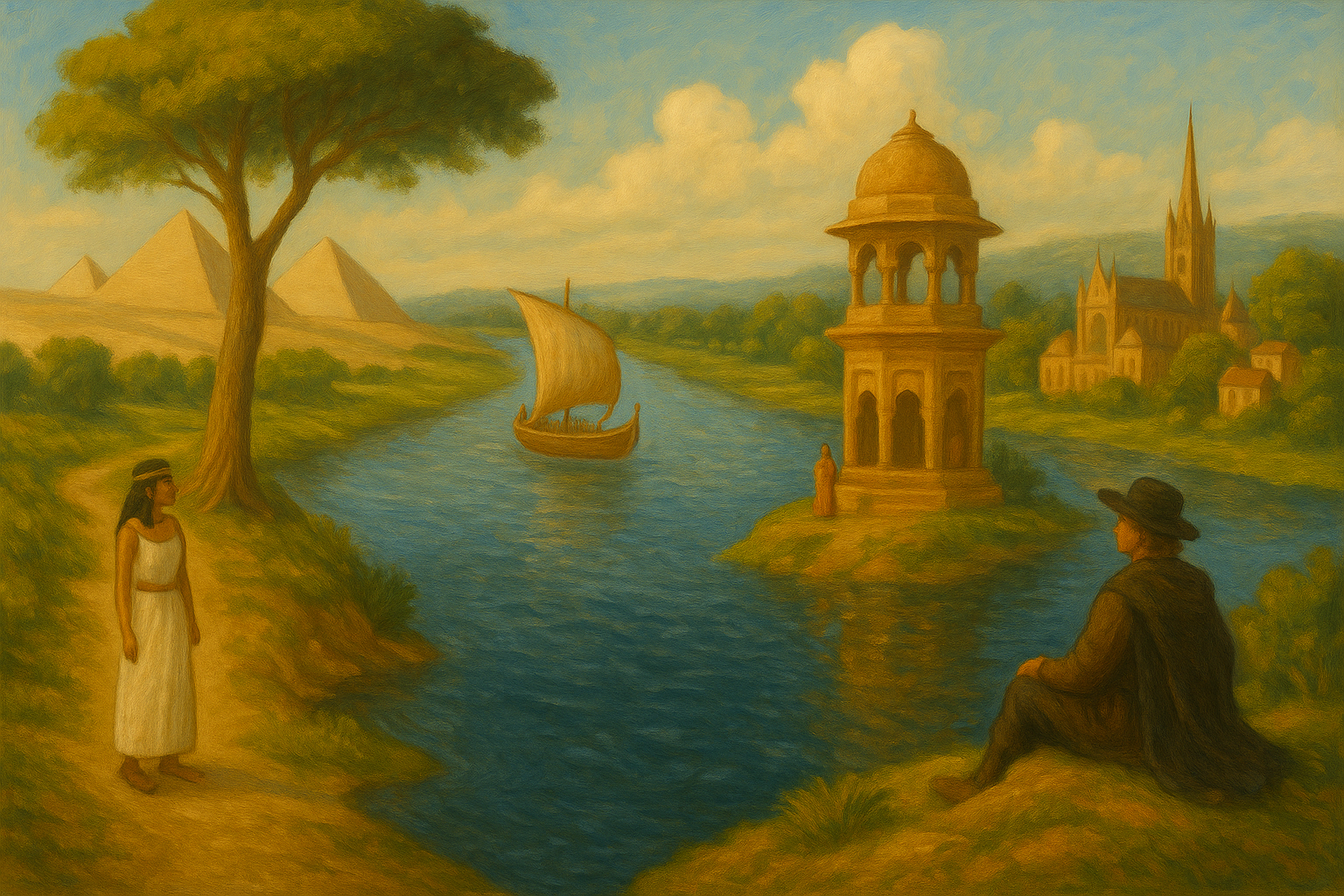Rivers have undeniably shaped civilizations by providing fertile land, serving as vital transportation routes, and offering a wealth of natural resources. Ancient and modern societies alike owe their growth, sustainability, and resilience to the mighty rivers that traverse our planet. This article delves into the crucial role rivers play in human development and how they continue to influence cultures today.
The Role of Rivers in Human Development
Rivers are the lifelines of human development, crucial for agricultural productivity, transportation, and sustenance. The fertile floodplains along rivers like the Nile and Tigris-Euphrates enabled the emergence of agriculture, fostering the rise of ancient civilizations such as Egypt and Mesopotamia. They provided:
1. Fertile soil for agriculture
2. Accessible waterways for trade and travel
3. Resources for fishing and drinking
4. Routes for cultural exchange
Expert Insight: “Rivers have driven human history by shaping social and economic landscapes,” explains Dr. John Smith, a renowned historian at Harvard University.
Historical Rivers That Changed the Course of History
Certain rivers, such as the Nile, Ganges, and Amazon, have been pivotal in shaping world history. These rivers provided not only trade routes and sustenance but also fertile grounds for cultural growth and spiritual beliefs.
* Nile River: Essential for Egyptian civilization and agriculture
* Ganges River: Central to Indian trade and spiritual life
* Amazon River: Vital to indigenous cultures and biodiversity
According to a 2023 study by the World History Encyclopedia, these rivers have significant cultural and economic influence.
Rivers Comparison Table
| River Name | Major Civilization | Key Contributions |
|---|---|---|
| Nile | Egypt | Agriculture, Transport, Spirituality |
| Ganges | India | Trade, Culture, Religion |
| Amazon | South America | Biodiversity, Indigenous Cultures |
The Geography of Rivers
Rivers shape civilizations through their geographic features, impacting land use, climate, and human settlement patterns:
* Watersheds: Crucial for water supply management
* River Basins: Influential in determining agricultural patterns
* Delta Regions: Highly fertile for crop cultivation
Fact: According to the USGS, effective watershed management can improve water quality and prevent erosion.
Cultural Impact of Rivers on Societies
Rivers are deeply embedded in cultural narratives, influencing art, religion, and community life:
* Mythology: Rivers often feature in creation myths
* Spiritual Practices: Rituals and ceremonies frequently occur by riverbanks
* Community Identity: Rivers shape local customs and festivals
Voice Search Insight: “Why are rivers important to culture?” Rivers symbolize life, purity, and continuity, making them central to cultural identity.
How Climate Change Affects Rivers and Civilizations
Climate change poses significant threats to river ecosystems, with profound impacts on civilizations relying on them:
1. Increased droughts reducing water supply
2. More frequent flooding devastating communities
3. Habitat disruptions affecting biodiversity
A UN Report (2022) highlights that adaptive river management is crucial to mitigating these effects.
Sustainable Practices for River Conservation
1. Ecosystem Restoration: Enhancing natural habitats
2. Conservation Efforts: Protecting endangered species
3. Water Management: Implementing efficient use strategies
Urban Riverscape Development
Cities are evolving to adapt and benefit from river landscapes through innovative urban planning:
* Green Infrastructure: Parks and greenways along rivers
* Public Spaces: Riverfronts for recreation and community gathering
* Sustainable Urban Drainage: Reducing flood risks
Case Study: Copenhagen’s Blue-Green Infrastructure project exemplifies successful urban adaptation ({source}2023 Copenhagen City Report).
River Restoration Projects Across the Globe
Notable river restoration efforts demonstrate meaningful ecological and community benefits:
* Comprehensive Planning: Integrating river health into urban development
* Community Involvement: Engaging locals for sustainable outcomes
* Successful Case: The Rhine River restoration in Europe improved water quality and biodiversity ({source}European Commission Report, 2023).
Lessons from Rivers: What Can We Learn?
Rivers teach modern civilizations about resilience, adaptability, and community strength. By examining historical river use, we glean insights into sustainable living and resource management, essential for future progress.
Actionable Insight: Incorporate river lessons into current conservation strategies to enhance future sustainability.
Conclusion
Rivers are more than geographical features; they are the nurturers of civilizations, shaping cultures, economies, and societies throughout history. As we navigate modern challenges, the lessons rivers offer guide us towards sustainable and resilient living. Embrace the wisdom of rivers for a thriving future.
FAQs
Q1: How have rivers influenced civilizations throughout history?
Rivers provided the necessary resources for agriculture, transportation, and trade, enabling the birth and growth of ancient civilizations like Egypt and Mesopotamia.
Q2: What are some major rivers that impacted trade?
The Nile, Rhine, and Yangtze rivers have historically served as crucial trade routes, facilitating cultural and economic exchanges.
Q3: How is urban development changing river ecosystems?
Urban development incorporates green infrastructure and sustainable drainage solutions to adapt to and preserve river ecosystems.
Q4: What sustainable practices are necessary for river conservation?
Implementing ecosystem restoration, efficient water management, and active community involvement are vital for sustainable river conservation.
Q5: Why are rivers considered vital for cultural identity?
Rivers often hold spiritual significance and feature prominently in cultural narratives, ceremonies, and local traditions, forming an integral part of cultural identities.
